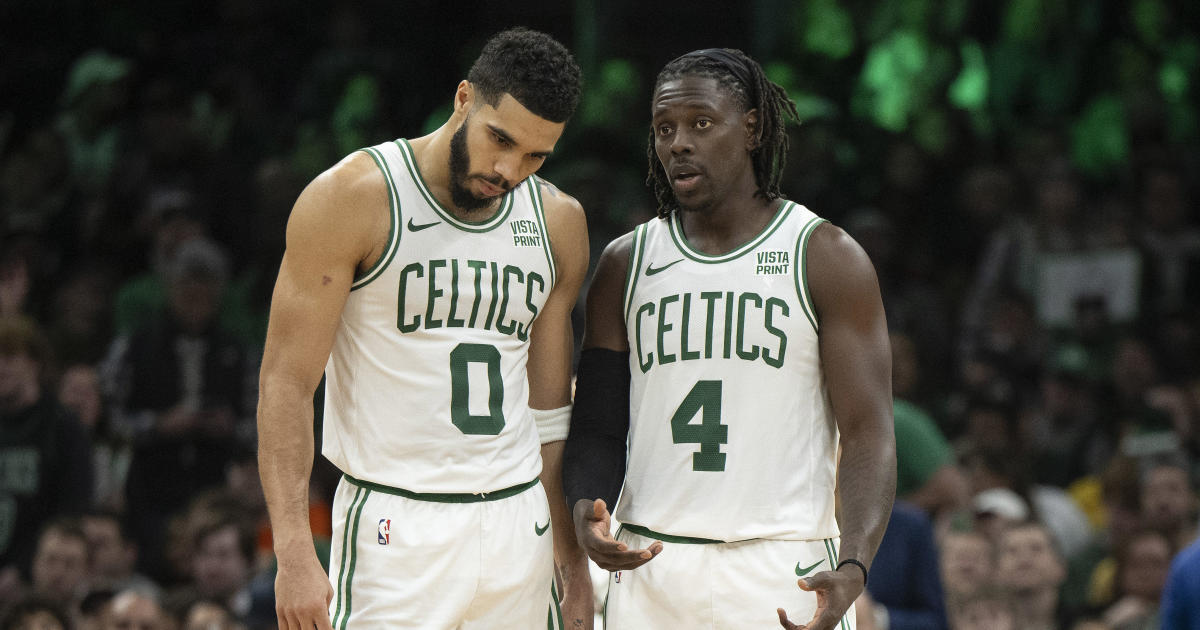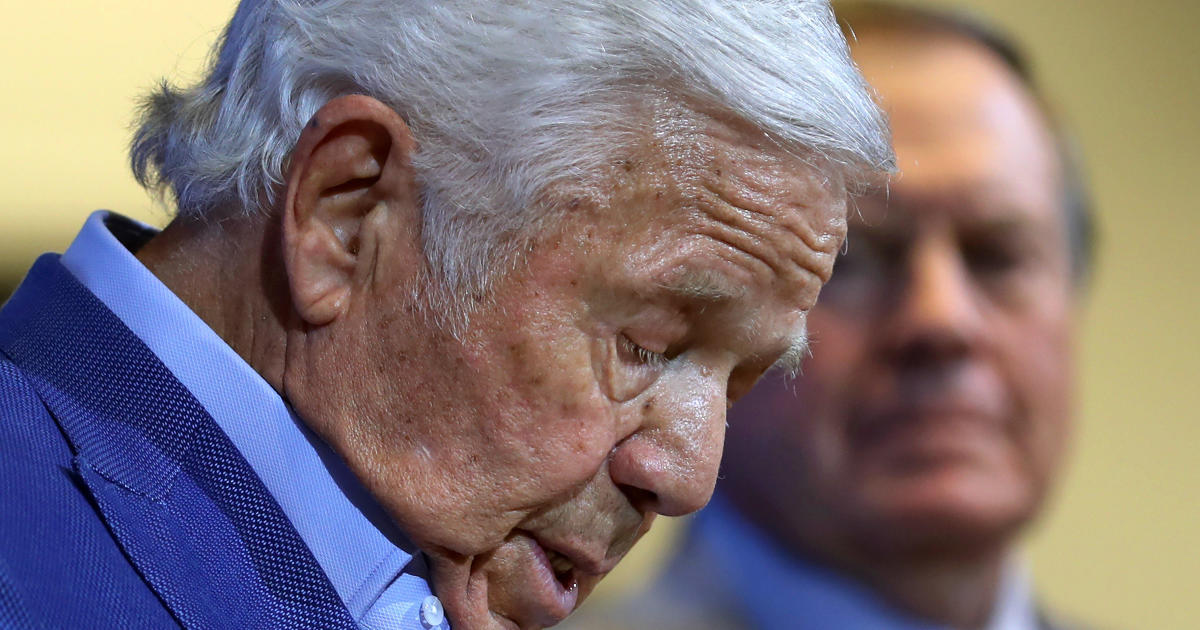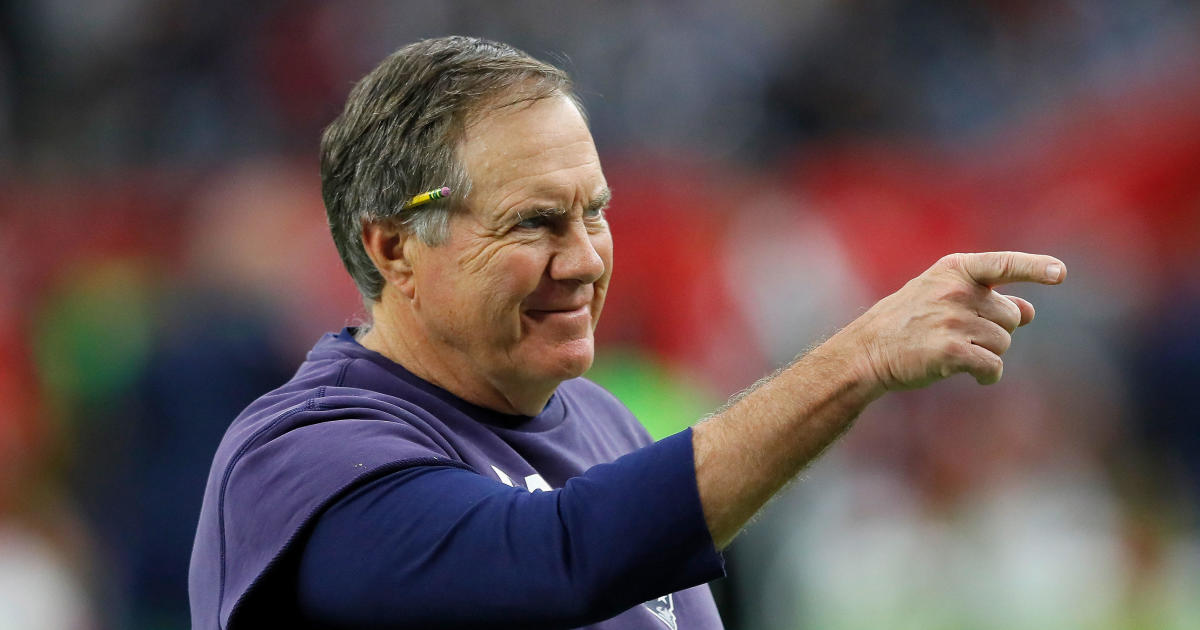How Brady's Absence Helped Patriots Offense Evolve Into Championship Style Of Play
By Michael Hurley, CBS Boston
BOSTON (CBS) -- The best thing that ever happened to the Patriots was losing Tom Brady for four games.
Being forced to play without the future Hall of Famer for a month certainly didn't make life easier for the Patriots, but that's exactly the point. The 2015 season proved that the Patriots as a whole had been vulnerable to believing Brady was capable of carrying a superhuman workload on his shoulders. Though he came as close as possible to actually making it work, the reliance on Brady and the passing game was ultimately the team's undoing in the AFC Championship Game in Denver.
The disparity between last year and this was perfectly on display on Sunday afternoon in Denver, when Brady was not great. He did not have to be.
And the Patriots won by 13 points.
Last year on that same field, Brady was besieged by ferocious pass rushers all day, but stood in to deliver a fourth-quarter comeback attempt for the ages. It was a sight to behold. But the Patriots lost the game.
Of course, comparing this year's Broncos team to last year's Super Bowl-winning squad is not an apples-to-apples endeavor. Peyton Manning -- albeit a dead-armed, semi-retired Peyton Manning -- represented a much more dangerous threat at quarterback than Trevor Siemian. And defensively, the absence of Malik Jackson and then Derek Wolfe along the defensive line made life easier for the Patriots offense.
At the same time, one game featured a healthy Rob Gronkowski churning up the field in the fourth quarter. The other featured no Gronkowski at all.
But consider that in the Patriots' two trips to Mile High last year, over more than eight quarters of football, Tom Brady handed the ball to a running back a combined total of 30 times.
On Sunday, he handed it off 38 times.
That, more than anything else, has been critical in this Patriots offense evolving to the point where it needs to be to win in January and ultimately contend for a Super Bowl. The Patriots had a rushing attack in 2014 that at least kept defenses honest and could contribute when needed (see: AFC Championship Game vs. Indianapolis). Last year, due to injuries and personnel and coaching, it had nothing of the sort.
2014
Fourth in points scored
609 passes thrown, seventh-most
438 rushes, 13th-most
392 rushes when excluding QB runs2015
Third in NFL in points scored
629 passes thrown, fifth-most
383 rushes, 25th-most
344 rushes when excluding QB runs2016
Sixth in points scored
557 passes thrown, 22nd-most (on pace through 14 games)
472 rushes, fourth-most (on pace through 14 games)
422 rushes when excluding QB runs (on pace through 14 games)
It is a wholly different offense this year.
Essentially, the absence of Brady in September forced the Patriots to reset their entire offense. The offensive line had to be better. The running backs had to be better. The coaches had to be better. And they all have been.
The additions of fullback James Develin, left tackle Nate Solder (both of whom were injured last year) and rookie guard Joe Thuney, along with the rapid improvement of right tackle Marcus Cannon, has helped solidify the work inside the tackle box. The health of LeGarrette Blount and the return of Dion Lewis has the Patriots' rushing game ranked seventh in the NFL at 117 yards per game. And the 23 sacks allowed by the O-line ranks the Patriots with the sixth-fewest in the league.
It's certainly possible that the Patriots would have focused on getting back to basics on the line and in the run game even if Brady was playing in all 16 games. But the insertion of Jimmy Garoppolo (and then Jacoby Brissett) into a starting quarterback role forced their hand. Necessity tends to be the world's most influential motivator.
In those games without Brady, the Patriots ran 130 rushing plays and 114 passing plays. Since then, they've been more pass-heavy (373 passes to 283 rushes), but the balance has remained.
To be clear, the Patriots certainly let Brady air things out when he was released from his cage in Week 5. Between that season debut and the Week 13 shellacking of the lowly Rams, Brady threw 40 or more times in four of his eight games played.
But Sunday's game marked a noticeable change, in that the Patriots were able to win a regular-season game in which Brady did not throw a touchdown pass. That's something the team hasn't accomplished since, really, 2007. (The Patriots won Brady's lone start in 2008, though he left due to injury in the first quarter.) Since beating the Jets in Week 15 of the '07 season, the Patriots went 0-8 in games in which Brady didn't throw a touchdown.
They did win two such postseason games along the way (2011 vs. Baltimore, 2013 vs. Indianapolis), but the overarching point is this: If the Patriots can now win without relying on Tom Brady to do everything, then they're in much better position to compete for that Lombardi Trophy than they were a year ago.
Last year, as was dutifully tracked right here, Brady threw 624 passes. No quarterback in history has ever won a Super Bowl after throwing 600 passes in a season. The Patriots ran the ball just 383 times, the 25th-lowest number of attempts in the league. An offense led by Brady is always going to be a passing offense above all else, but the Patriots lost any semblance of balance as the year wore on.
This year, with Blount and Lewis and James White all healthy in December, the Patriots are on pace to throw 557 passes and run the ball 472 times. They currently rank fourth in the NFL in rushing attempts and 22nd in pass attempts.
If anything, looking at those numbers, they may have swung farther than necessary in that direction. But given the results -- they rank sixth in points and fourth in yards per game -- it would be hard to argue that it has not been a successful change.
You can email Michael Hurley or find him on Twitter @michaelFhurley.



